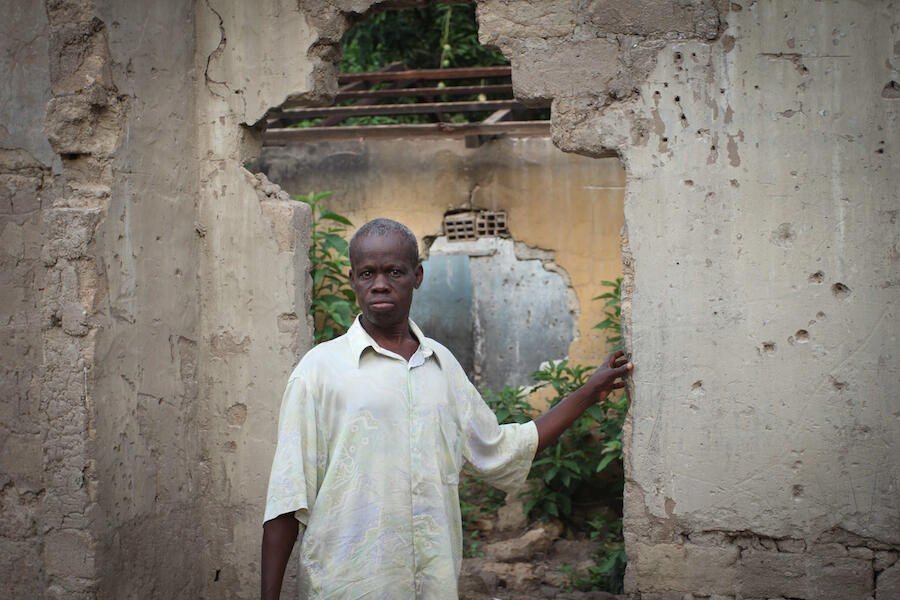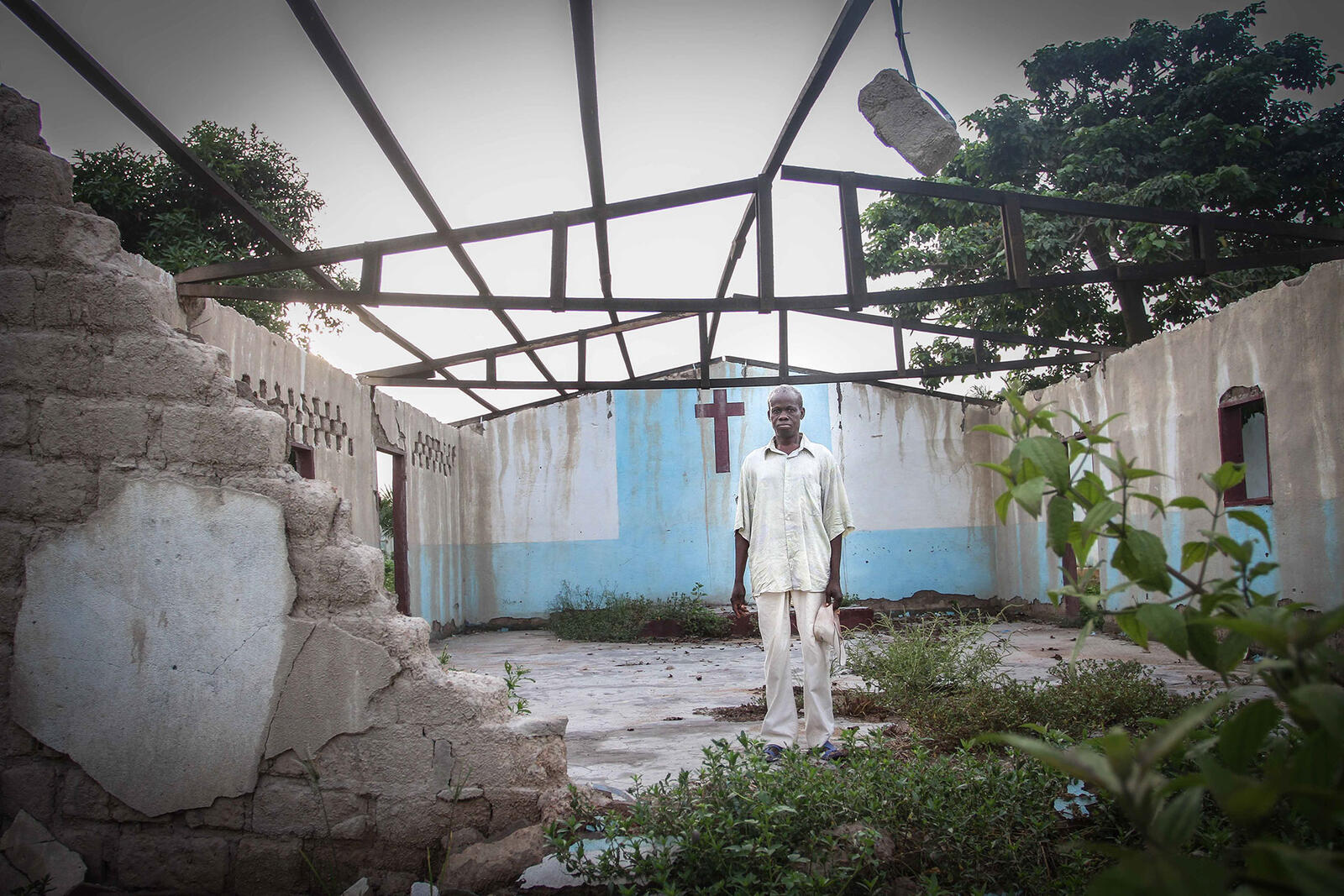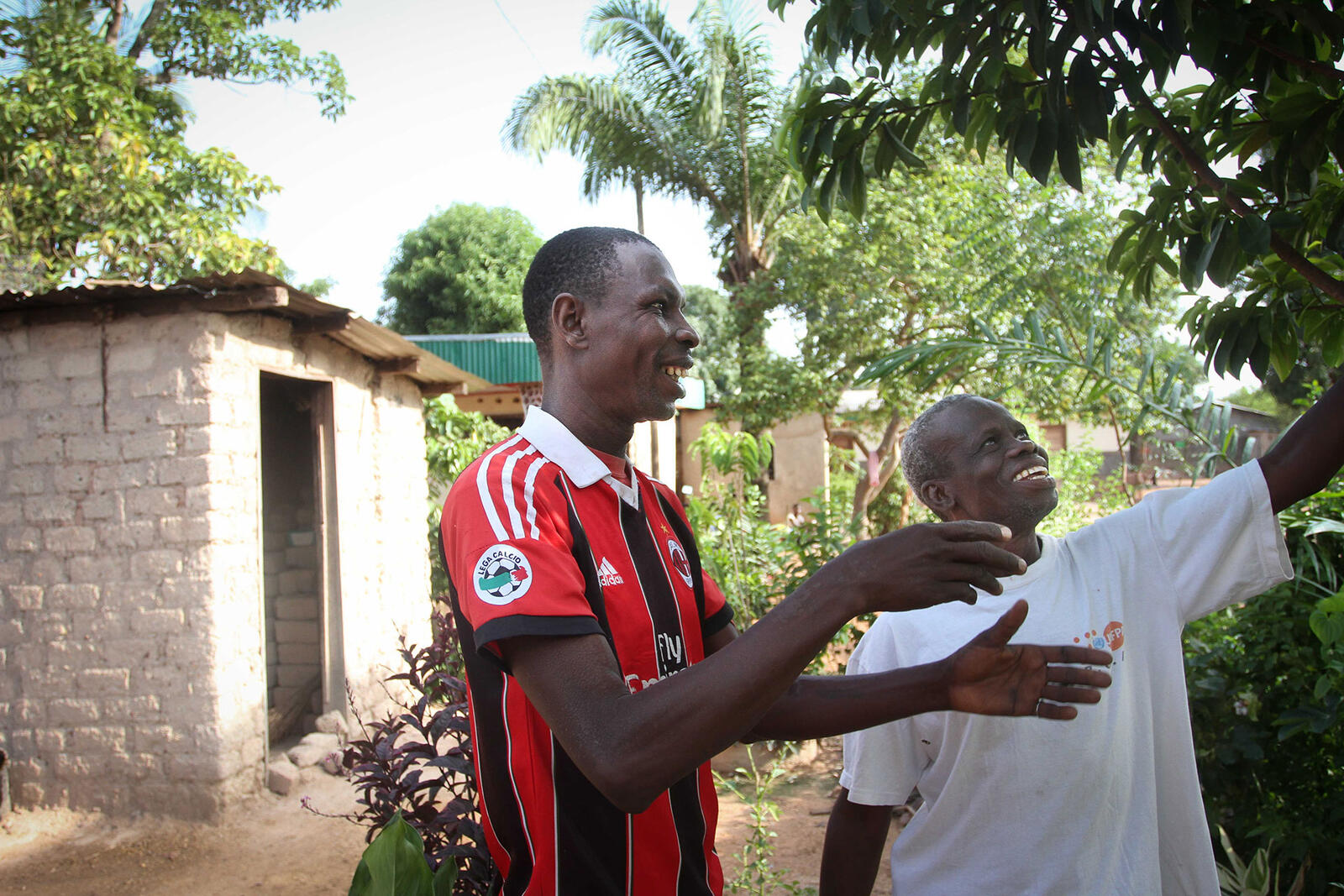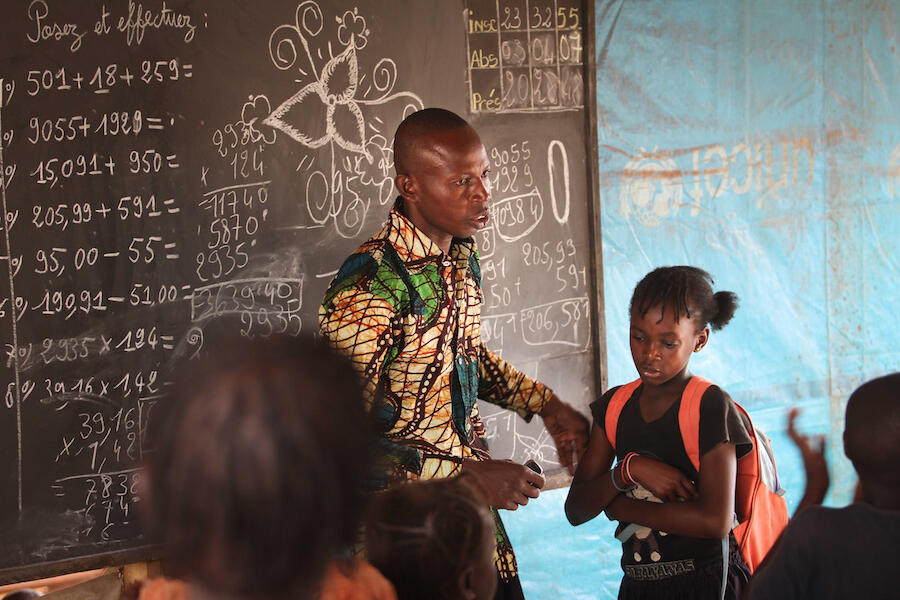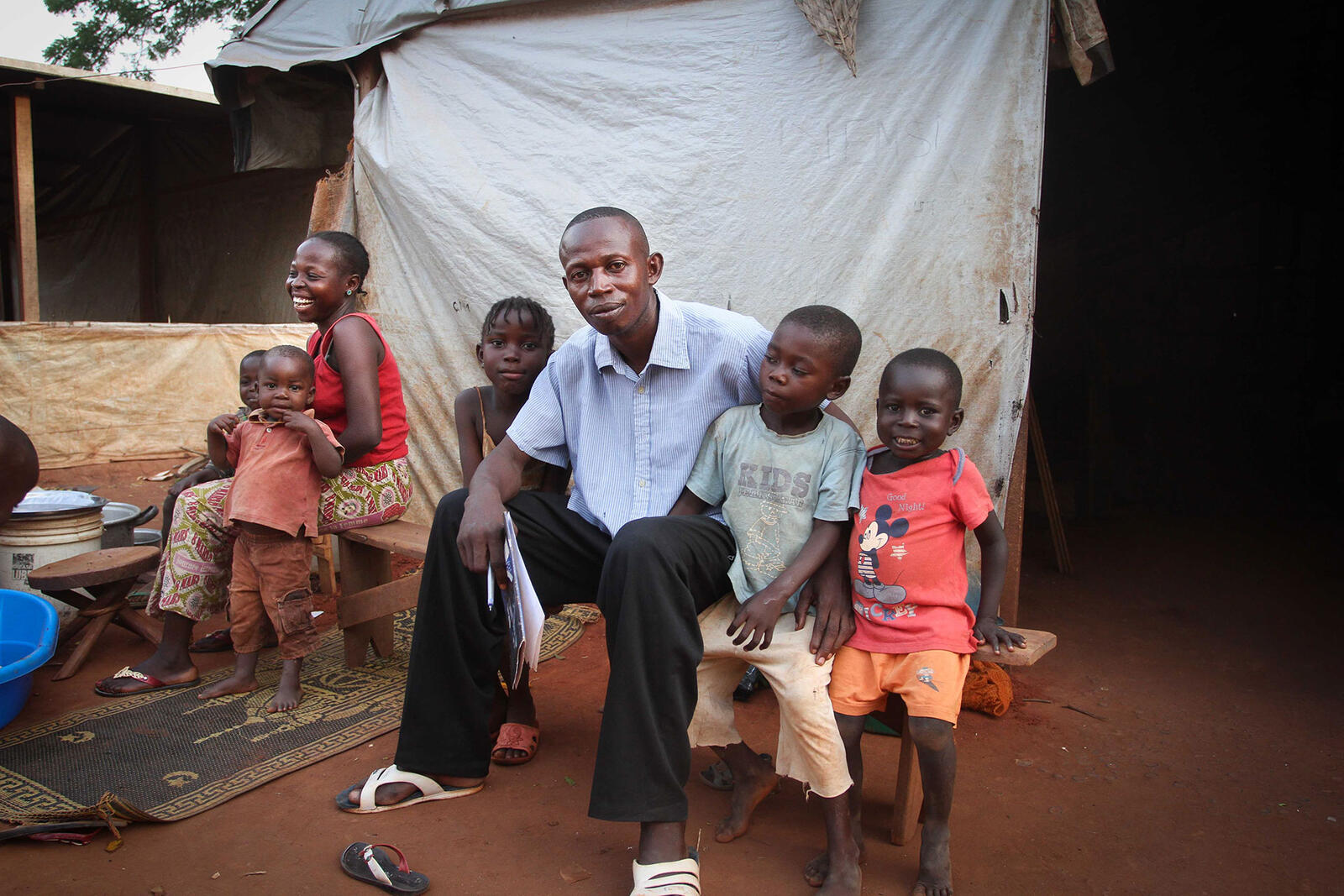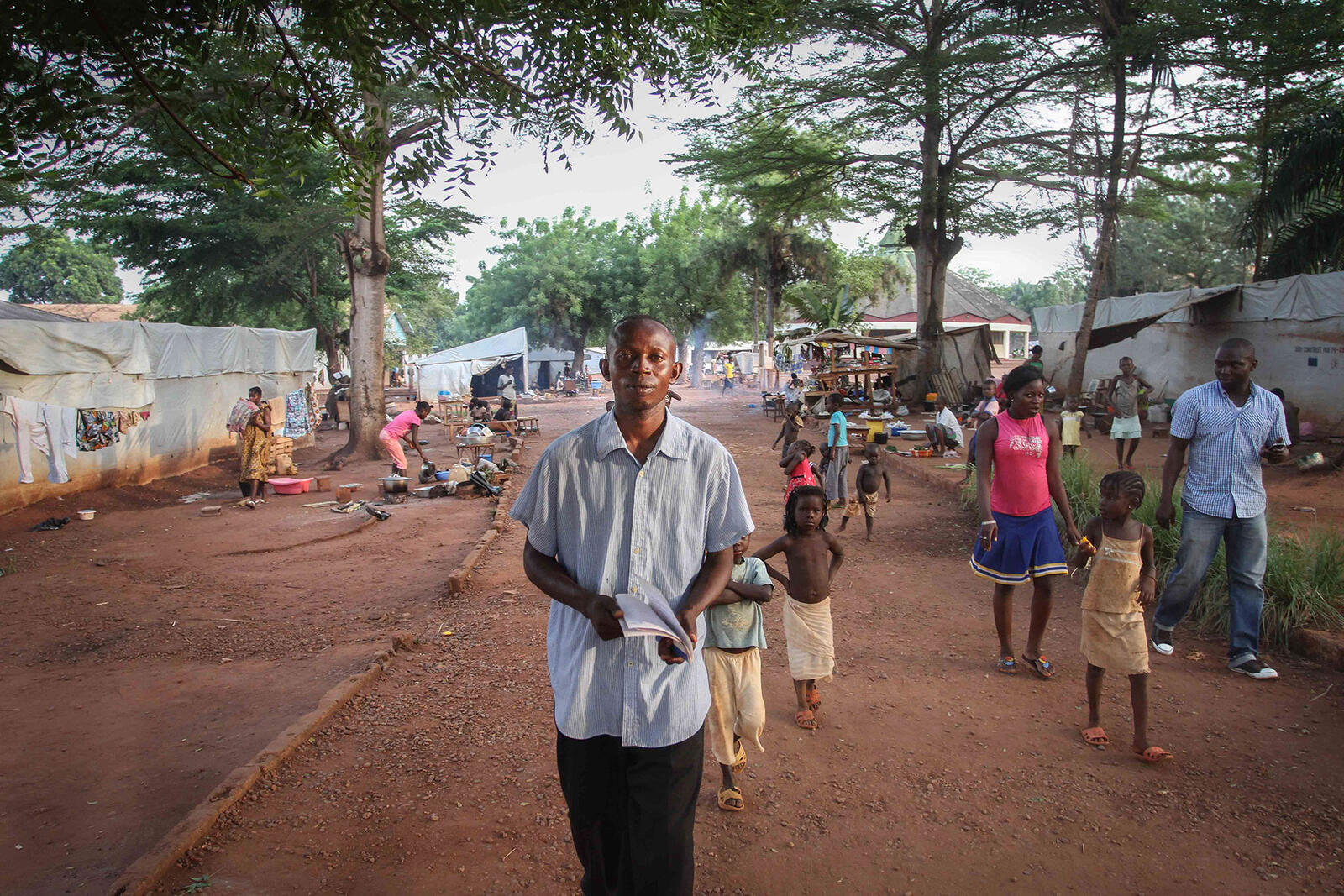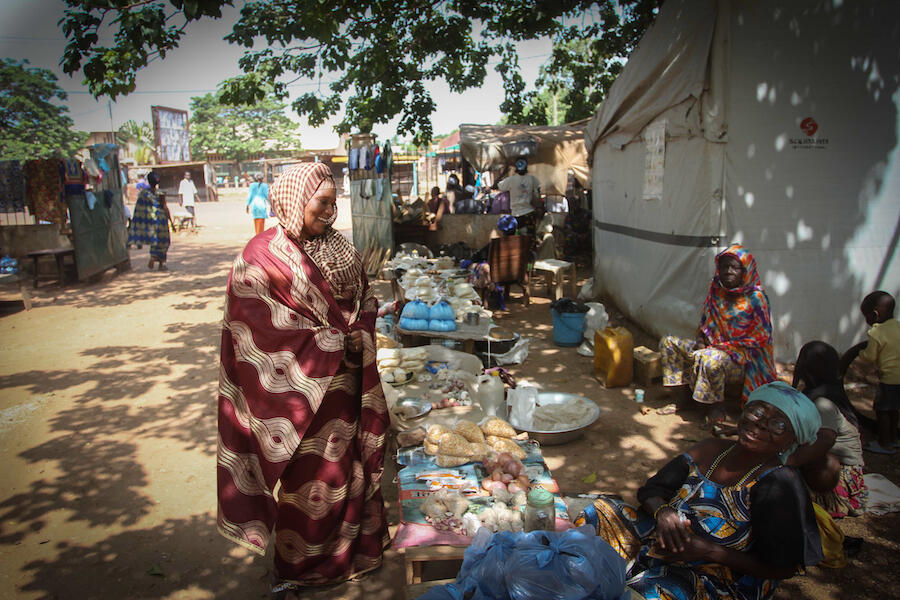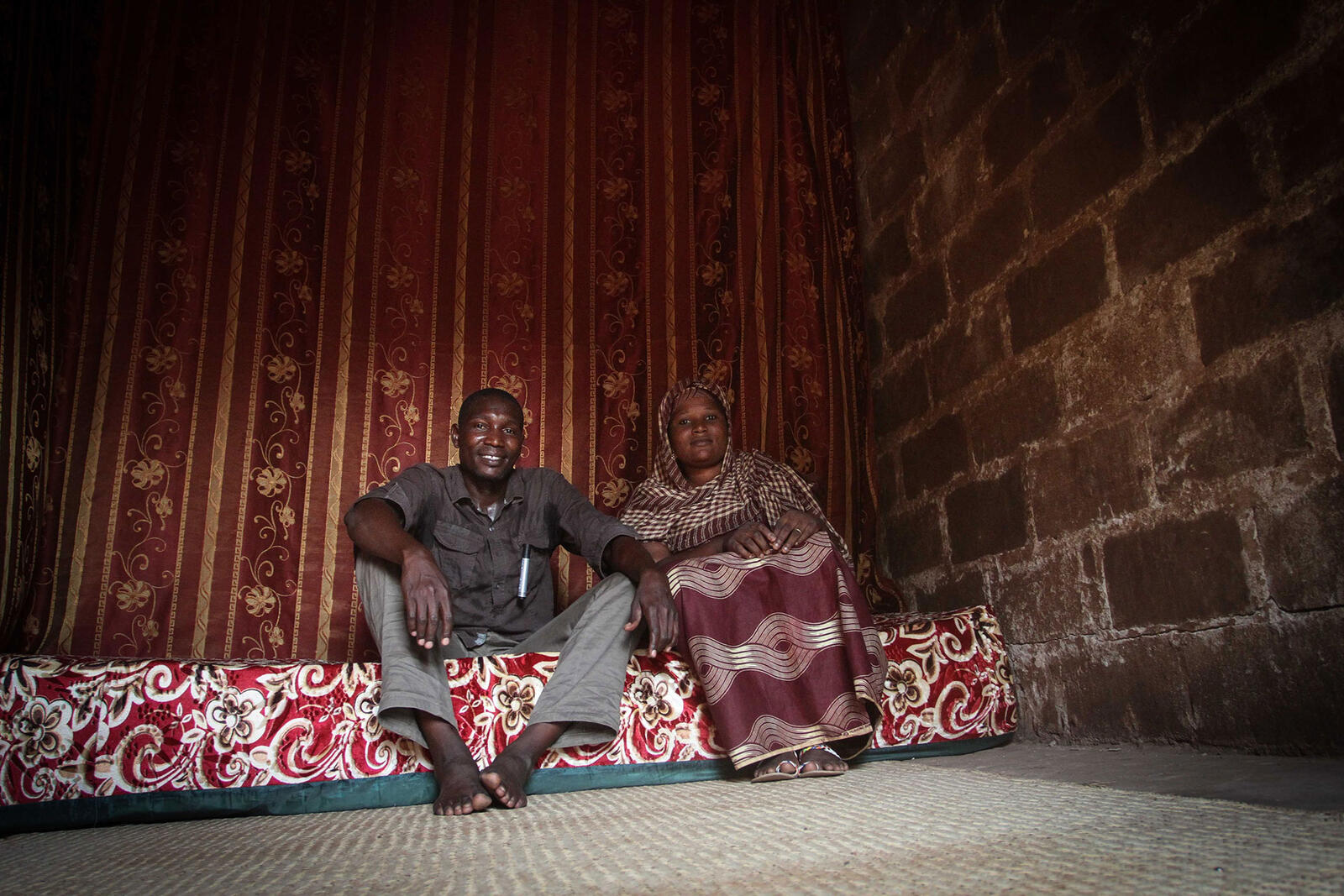Survivors in Bangui Seek a Way Forward

Survivors in Bangui Seek a Way Forward
The future of the Central African Republic, and of its people, hangs in the balance as representatives gather this week in the capital, Bangui, to chart a way forward. Over the last two years, the country has descended into chaos, becoming one of the world's worst humanitarian crises – and one of the most frequently forgotten.
Thousands of people have died. Many more have lost track of loved ones and seen their houses burnt to the ground. Over 450,000 men, women and children have fled to neighbouring countries and become refugees. Another 436,000 remain displaced within the country. But the real tragedy may be the long-term effects of atrocities often attributed to religious differences.
When the Bangui Forum on National Reconciliation opens on Monday, 4 May, it will bring together representatives from armed groups, government, political parties, civil society organizations, refugee communities and internally displaced populations. There is one question none of them can yet answer: Will the people of the Central African Republic ever be able to come together as one nation again?
Meet three courageous survivors who have found shelter in Bangui, unable to return to their homes just a few kilometres away.
The Preacher
Deacon Ambroise walks quickly, his eyes downcast, as he leads us to his old church. The torn-up path threads past the ashes and skeletons of houses – each one a painful reminder of how much has been lost.
Today, he barely recognizes his old neighbourhood, Fondo, which sits near the border of the dangerous 3rd and 5th districts of Bangui. When anti-balaka fighters attacked the capital on 5 December 2013, his house was targeted amid reprisal attacks by the ex-Séléka. He fled to stay alive. "They threw grenades from the windows," he remembers. "I took my wife and kids and we started running without looking back."
Ambroise was only able to revisit these once-familiar premises a couple of months ago. "Witnessing the destitution of a place dear to your heart is painful," he says. He quickly realised that his home, his church, his 'quartier' and his memories were no more, having been swept away by the deadly violence that has rocked his country.
"I took my wife and kids and we started running without looking back."
Only a few walls of his church remain, a painted red cross still visible on one of them. Nature is reclaiming the neighbourhood. Saddened by the desolate spectacle of his home, Ambroise makes his way through the tall grass, running his fingers over the peeling paint and crumbling walls, as he recalls how lively the place once was.
"This was a place filled with life, music and spirituality," he says. "Today, people don't come here to pray. They are afraid of coming back. The word 'neighbourhood' does not make sense anymore, as there are no neighbours. All we need is to cut the grass, clean up the space and bring life back to this place. We need to find the money to rebuild. What I would really like to do is to rebuild my church, even before my own house. It hurts me to come here and see it in such a state. I want this place to become a meeting point once again."
"What I would really like to do is to rebuild my church, even before my own house . . . I want this place to become a meeting point once again."
Ambroise has already approached the authorities and solicited the help of the diocese, but he is still awaiting a positive response. He estimates the cost of rehabilitating his church and his house at FCFA 10 million – about US $20,000.
"This church has given me and the community so much," he says. "It helped us to move forward. I will do everything I can to have it back."
The Teacher
A phone call saved Gildas's life. "Hurry up and leave now," were his friend's only words.
Gildas ran outside the Notre-Dame de Fatima Church in Bangui with his wife and kids, and hid beneath a car. From there, they witnessed the most terrifying scene of their life.
"They arrived on motorcycles," he recalls. "They were 10, 20, I don't even remember. They managed to open the main gate with grenades, and started firing on everybody. I was petrified. When they stopped firing, they ran in with machetes. I am trying to get rid of these images, but I don't know how. It is as if they are printed in my memory. Whenever I see a knife, I move back. It is an instinctive movement."
Gildas and his family found refuge in another religious institution, the Grand Séminaire in Bimbo district, which is hosting hundreds of people displaced by fighting.
"It is through education that we will be able to get up and rise."
"I have not gone back to my home since our flight," he says. "It is still unsafe over there. I need to know that my children are protected from any harm, that security is back, and then I can think of returning. If the Bangui Forum does not effectively address the disarmament and reintegration program, then all efforts will be useless."
At the Grand Séminaire camp, now home to over 4,400 displaced people, Gildas has resumed his former occupation as a teacher. Equipped with little more than a blackboard and some chalk, he leads classes for 60 students seated on the floor.
"Education is paramount," he says. "We cannot have children doing nothing all day long. We need to occupy this free time; otherwise someone else will take advantage of their idleness. I would like the government to provide the education sector with additional resources that would guarantee proper conditions for the student and for the teacher. It is through education that we will be able to get up and rise."
The Neighbour
After 14 months as a refugee in Cameroon, Myramou finally returned to Bangui in March 2015.
"I decided to come back," she says. "It was not easy over there. And my country is the Central African Republic. This is where I was born and where I grew up. This is where I belong."
Myramou and her family, who are Muslim, used to live peacefully in Mont Carmel, in a mixed neighbourhood in the capital's Plateau district. "When armed people got into our place, threatening to kill me and my children, our neighbours, who happen to be Christians, protected us. They even got us a car to run away. Without their help that day, I would not be here talking to you."
It all happened so quickly for Myramou. Her husband was out of the house and she had just a few seconds to react. "I did not have time to think. In a matter of minutes, we were out. I had nothing else but my clothes on. The next thing I know is we were in M'Poko, and the next morning in a plane heading to Cameroon."
"Our neighbours, who happen to be Christians, protected us," says Myramou, a Muslim. "Without their help that day, I would not be here talking to you."
In Douala, Myramou stayed at her aunt's, but she felt terribly homesick. "I missed my husband, my people, and recognized that no matter what, this was not home. I also realized that I was becoming a burden for my aunt."
Myramou has now reunited with her husband and even with some of her neighbours. Because they helped her, they too received threats and had to leave their neighbourhood.
"Our Christian neighbours share our conditions of displacement," Myramou says. "We are again neighbours, share meals and precious moments together. This is what I call social cohesion. And it is anything but new. It has always been the case. The current crisis is just a passing fad. But it will have a profound aftermath if justice is not done. Perpetrators must be prosecuted, arrested and tried. No matter how long it will take."
Photographer Anthony Fouchard contributed to the reporting and writing of this story.


